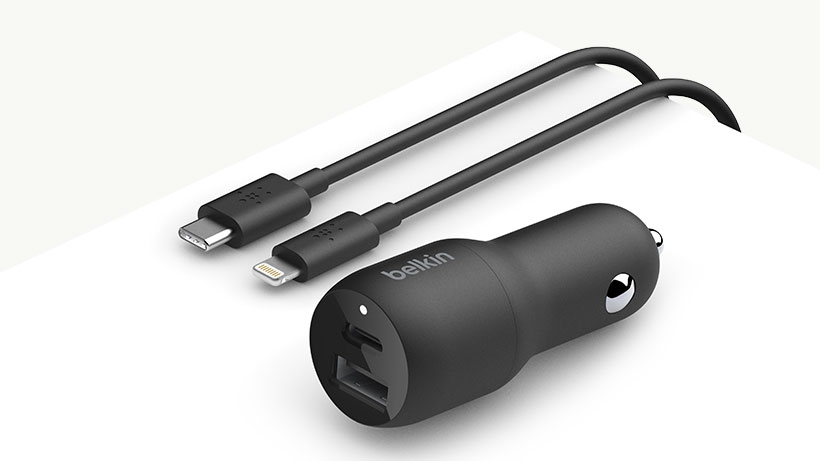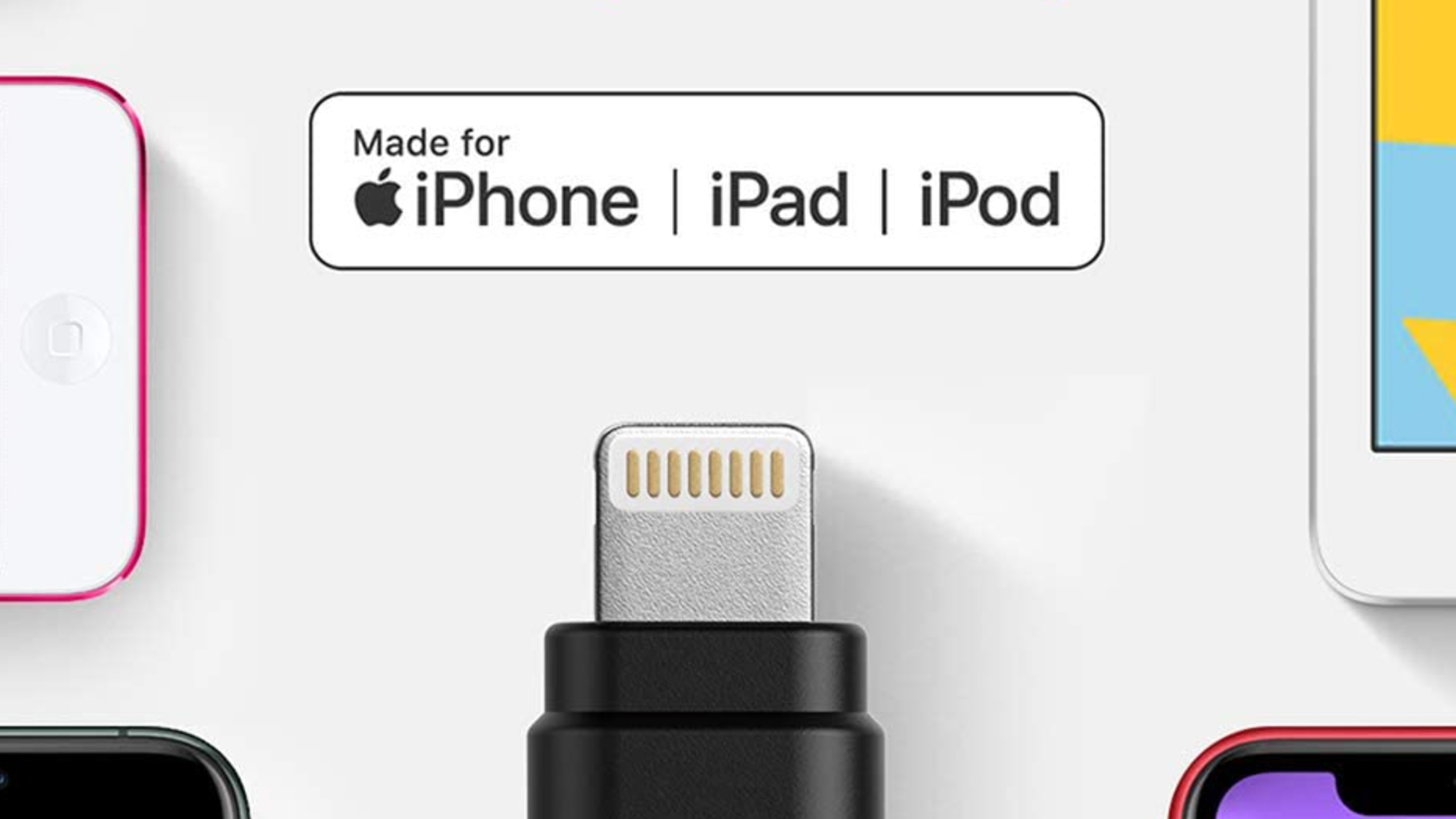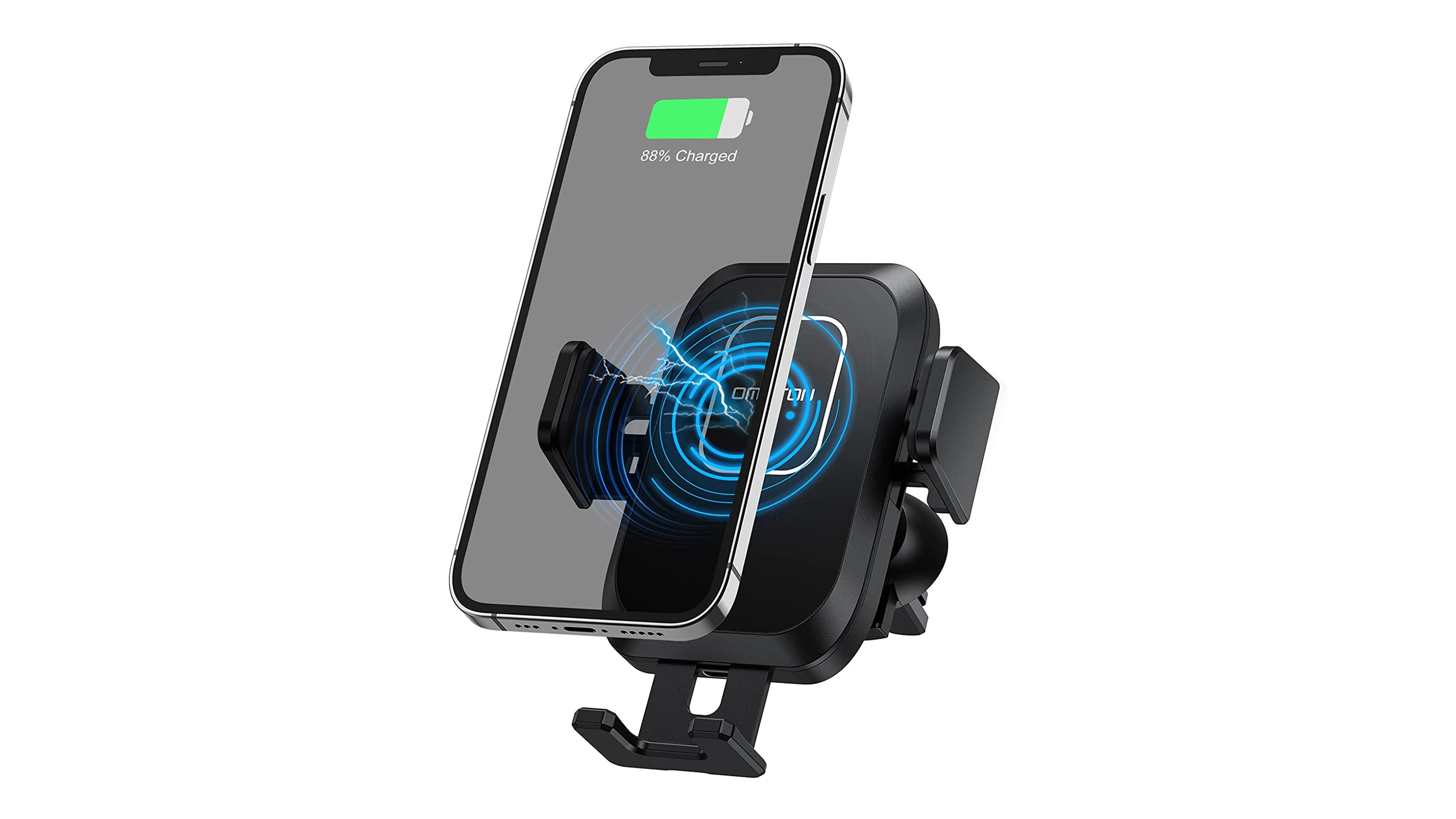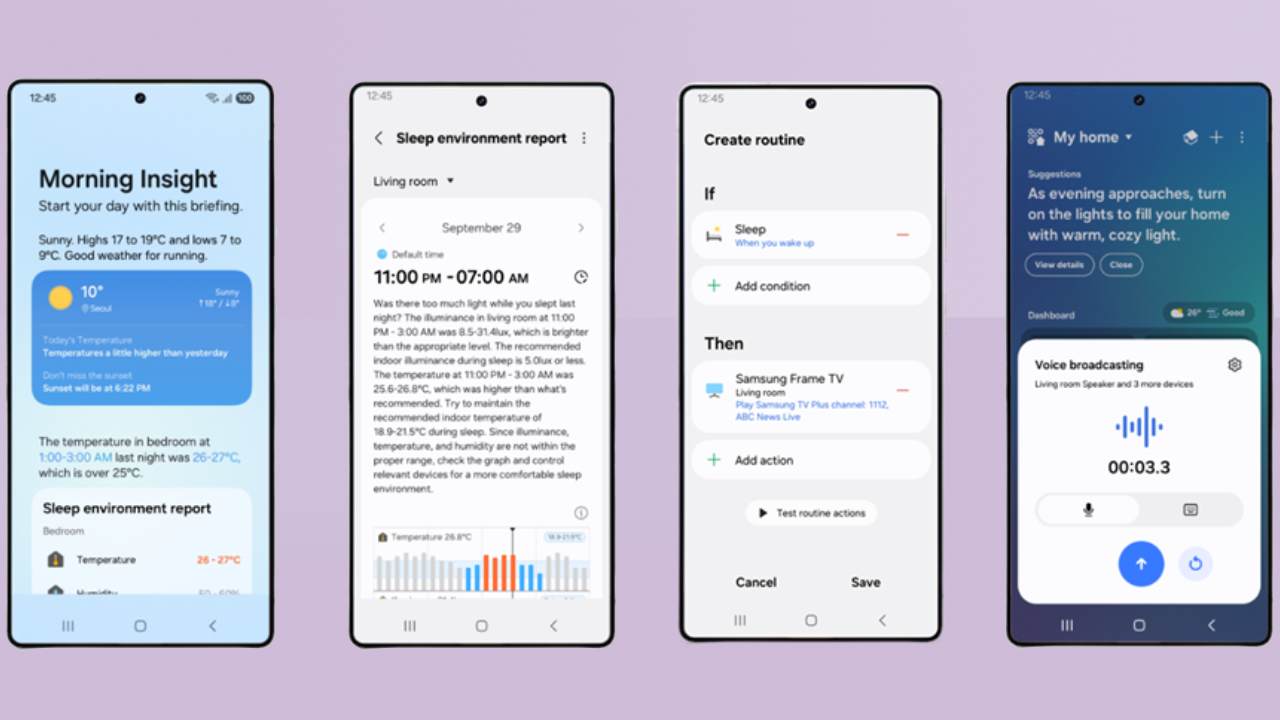

Chances are, you plug your iPhone into a car charger without ever really thinking about it, maybe even using one of T3's best car chargers. Any USB cable into any socket, or via any kind of adaptor. So long as it works and the battery charges back up, you’re happy.
But there’s actually more to it than that. This is because the USB ports of a car tend to deliver power at a varying rate, and generally deliver less power than your iPhone normally receives from a wall plug.
Secondly, the 12V socket of your car (also known as the lighter socket) is overspecified for an iPhone, which normally receives power at 5V when using its own charger. This could also cause damage to the handset.
The trouble is, the damage caused by charging an iPhone incorrectly doesn’t usually present itself quickly. Instead of breaking immediately, using the wrong charger can slowly cause permanent damage to your iPhone, reducing its ability to charge, and hold charge, over its lifetime.
Think about it this way. We know not to fit an expensive sports car with cheap, poor-quality tyres. Yet using a £1 USB cable or a 12V adapter from a different device, like a dash cam, to charge an iPhone potentially worth over £1,000 doesn’t feel wrong, when perhaps it should. It’s frustrating having to pay significantly more for an official Apple charger, or at least a certified one from another company like Belkin, but spending extra now could be worth it in the long term if it means protecting the battery from damage.
Made for iPhone

This is where Apple’s ‘Made for iPhone’ certificate comes in. You’ll probably have seen this logo on the boxes of iPhone accessories, like chargers.
Apple advises iPhone owners to only use genuine Apple products or those that have been certified by the Made for iPhone (MFi) program. Using an uncertified charger and cable (or, worse still, a counterfeit one) may damage your iPhone and adversely affect its performance. Furthermore, Apple’s warranty does not cover damage caused by the use of a third-party accessory, like a charger, that doesn’t meet the company’s certification.
Sign up to the T3 newsletter for smarter living straight to your inbox
Get all the latest news, reviews, deals and buying guides on gorgeous tech, home and active products from the T3 experts
Some companies offer their own warranty. Belkin, for example, offers a two-year warranty that covers damage caused by the charger to devices worth up to £1,500.
Another thing to look out for, especially with older and smaller cars, is that plugging in an iPhone while the engine is switched off could drain the car’s own battery. Even just leaving a dash cam connected overnight with the ignition off can cause fairly modern cars to warn their owner about excessive battery drain. As such, you shouldn’t leave an iPhone plugged into a car for extended periods with the engine off.
What about wireless charging?

Another thing to be aware of is temperature. iPhones tend to get quite warm when charging, and if plugged into a car they are likely streaming music and potentially running a power-sapping navigation app at the same time. Add in some extra heat from the sun beating down through the windscreen, and an iPhone can quickly become too hot to function properly. The iPhone will then stop charging and only start again when it is cool enough to do so. You might want to direct the air conditioning at your phone to help it out.
This can be even more of an issue when using a wireless charging and wireless CarPlay, as found in some modern cars. This is a double hit for the iPhone, and with the wireless charger often hidden away, it’s difficult to keep your iPhone cool. While convenient, wireless CarPlay is a huge battery drain and we recommend using a certified USB cable for wired CarPlay instead.
In better news, many modern cars now have a USB port dedicated to smartphone charging. If there’s more than one USB port, the one designed for a phone is usually indicated as such. This port is for using Apple CarPlay or Android Auto and is therefore designed to charge your iPhone correctly.
The bottom line is this: When using a car’s USB ports or 12V socket, be sure to only charge with an adapter and cable that carries the Made for iPhone certificate. Some cars even have a domestic three-pin socket, and the same rules apply here – make sure you use a certified plug. They cost more money, but are safer and will not cause damage to your iPhone or its battery.
In short, car chargers are safe to use with your iPhone, but make sure both the charger and cable are certified for iPhone use, or from Apple itself. They cost more money, but could save you from the cost of a new iPhone battery down the line.
Now, with your newfound knowledge, go forth and read T3's guide to the best car chargers on the market today.
Liked this?
- Best dash cam
- Best car seat: keep your baby or toddler safe on the road
Alistair is a freelance automotive and technology journalist. He has bylines on esteemed sites such as the BBC, Forbes, TechRadar, and of best of all, T3, where he covers topics ranging from classic cars and men's lifestyle, to smart home technology, phones, electric cars, autonomy, Swiss watches, and much more besides. He is an experienced journalist, writing news, features, interviews and product reviews. If that didn't make him busy enough, he is also the co-host of the AutoChat podcast.
-
 The Handmaid's Tale hits different in 2025 but it's still a thrilling watch (no spoilers)
The Handmaid's Tale hits different in 2025 but it's still a thrilling watch (no spoilers)As season 6 kicks off on Hulu in the US, we see The Handmaid's Tale covering new ground with the same sense of foreboding
By Mat Gallagher Published
-
 Samsung SmartThings gets AI updates that improve your sleep – here’s what’s new
Samsung SmartThings gets AI updates that improve your sleep – here’s what’s newSamsung upgrades SmartThings with sleep, onboarding and Matter features
By Bethan Girdler-Maslen Published
